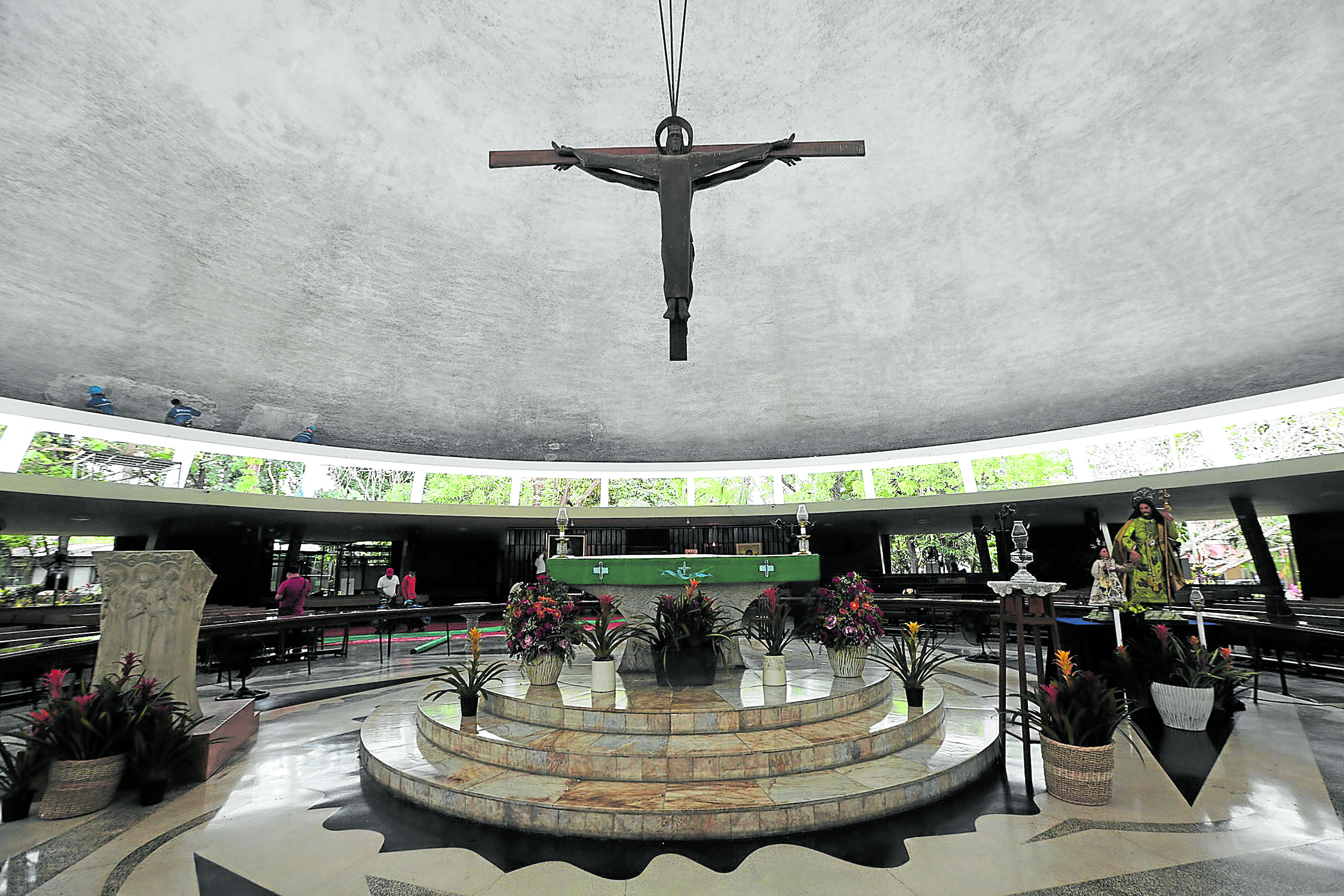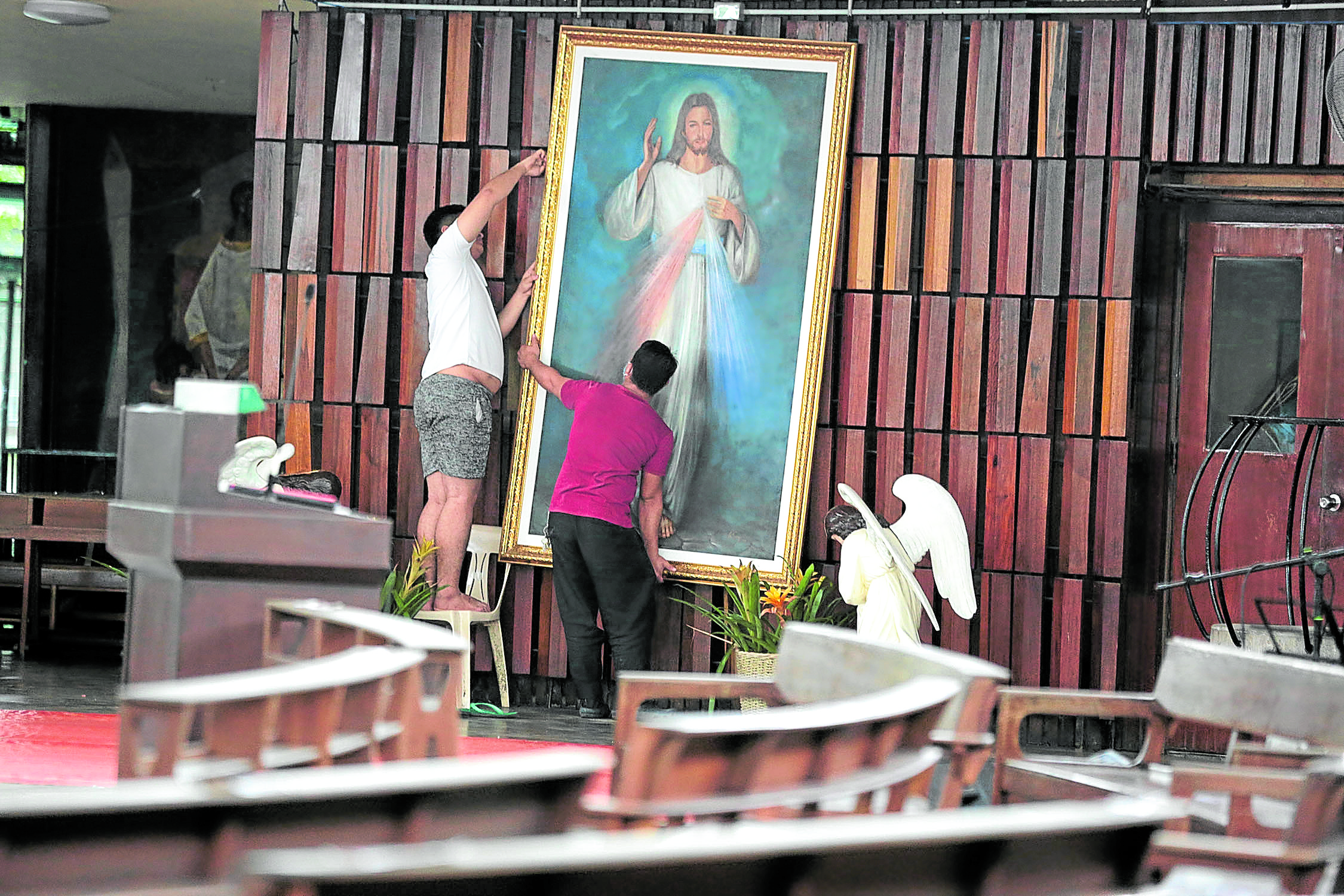
The 65-year-old Church of the Holy Sacrifice inside the UP Diliman campus is recognized as a national historical landmark and cultural treasure. —PHOTOS BY GRIG C. MONTEGRANDE
“A Passion To Build,” the memoir of the late David M. Consunji, founder of the DMCI group of companies, features just one photo on its cover, that of the Church of the Holy Sacrifice in Diliman, more popularly known as the University of the Philippines (UP) Chapel.
No other image would have been more appropriate. After all, the UP Chapel was the solid foundation on which DMCI Holdings, the listed multibillion-peso conglomerate with interests in construction, infrastructure, real estate development, water distribution and mining, was built.
Thus the DMCI Group, now led by David’s son Isidro, himself a proud graduate of the UP College of Engineering like his father, did not hesitate to answer the call to help refurbish the iconic structure, which marked its 65th anniversary on Dec. 20, 2020.
DMCI Homes, the real estate development arm of DMCI Holdings, led the team that repaired the landmark structure’s masonry cracks, declogged the downspouts and drains, installed new electrical fixtures. It also facilitated the repainting of the chapel’s unique dome and roof, as well as the walls, columns, eaves, underslabs and railings using paint donated by Boysen.
The UP Chapel features the work of several National Artists including Vicente Manansala, who did the murals of the Stations of the Cross
The repairs on UP Chapel, which is recognized as a National Historical Landmark by the National Historcal Commission of the Philippines and a Cultural Treasure by the National Museum of the Philippines, were supposed to begin early last year but the work was moved to the second half because of the COVID-19 pandemic.
The first phase of the massive rehabilitation work was conducted from July to December. This year, the work will continue to include the restoration of the chapel’s ceiling or the underside of the dome.
Consunji told the Inquirer that the UP Chapel will always have a special place in the heart of the Consunji family and the DMCI Group because it put the Consunji group on the construction map, showcasing to the market the type of trailblazing feats that his father can accomplish.
The gamechanger was the high-strength concrete that the elder Consunji developed in the laboratory of the UP College of Engineering and used for the first time in the construction of the UP Chapel, which was designed by the young architect Leandro Locsin, who would later become National Artist for Architecture.
Because the concrete could carry more weight, the chapel became the first “thin shell” structure in the country, putting Consunji on the map of construction.
The UP Chapel was constructed under the direction of Fr. John Patrick Delaney S.J., who was the UP chaplain during the transfer of the campus from Manila to Diliman in 1948 and saw the need for a permanent structure for worship within the sprawling campus.
Alfredo Juinio, then the new head of the UP civil engineering department, was tapped as structural engineer and through him, Consunji became part of the ambitious project.
When the structure was done, Consunji shared in the book that Locsin then talked to three artists who would all become National Artists – Napoleon Abueva sculpted the huge double-sided crucifix; Arturo Luz designed the floor mural titled “River of Life”, while Vicente Manansala, assisted by Ang Kiukok, painted the murals of the Stations of the Cross.
The second phase of the restoration of the Church of the Holy Sacrifice will include the repair of the ceiling or the underside of the dome


